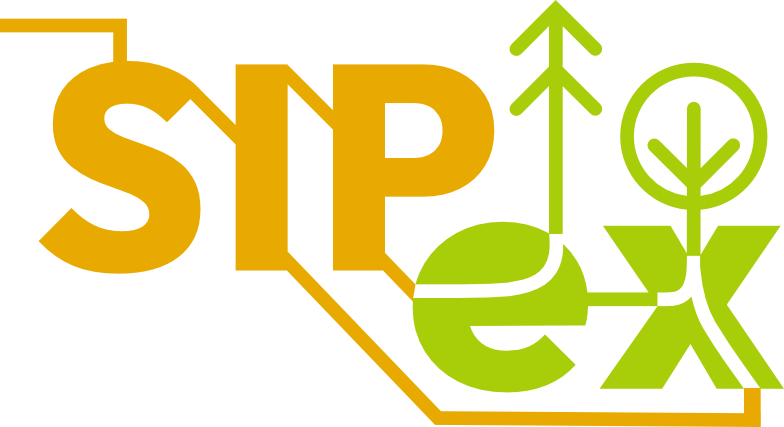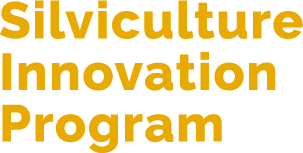-
Community Forests Advance Local Wildfire Governance and Proactive Management in British Columbia, Canada
This paper examines how community forests in British Columbia, Canada, are transforming wildfire governance by shifting away from traditional, centralized, and reactive approaches toward proactive, locally-driven management. The authors highlight th...This paper examines how community forests in British Columbia, Canada, are transforming wildfire governance by shifting away from traditional, centralized, and reactive approaches toward proactive, locally-driven management. The authors highlight that CFs, which are long-term forest tenures managed by Indigenous and/or local communities, act as local leaders in mitigating wildfire risk. Their success hinges on crucial factors such as financial and social capacity, particularly the ability to build trust and strong relationships with both community members and government agencies. Despite persistent challenges, the study concludes that CFs are a critical form of local wildfire governance, effectively implementing diverse strategies and fostering a fire lens in forest management to enhance wildfire resilience across various scales. -
The Role of First Nations Guardians in Wildfire Response and Management - A Proposed National Strategy
This document explores the critical and expanded role of First Nations Guardians in Canada's wildfire response and management efforts. The document argues that Indigenous-led conservation and stewardship, particularly through the growing Guardians mo...This document explores the critical and expanded role of First Nations Guardians in Canada's wildfire response and management efforts. The document argues that Indigenous-led conservation and stewardship, particularly through the growing Guardians movement, offers a powerful model for addressing both environmental challenges and reconciliation. The strategy addresses systemic challenges like climate change, the disproportionate impact of fires on Indigenous communities, and current barriers to First Nations participation in fire management, emphasizing the need to integrate Indigenous knowledge and science with Western practices. The doucment outlines a three-pronged approach for Guardians to contribute to emergency response, fire and forest management, and knowledge and science, emphasizing the need for sustained funding, training, and meaningful partnerships with Crown agencies to realize this vision. -
Fire Risk Reduction in the Coastal Douglas-fir Biogeoclimatic Zone - A Practitioner's Report
This document focuses on fire risk reduction in the Coastal Douglas Fir biogeoclimatic zone and synthesizes expertise from a collaborative community to address the escalating threat of wildfires. It highlights the unique challenges within the CDF, p...This document focuses on fire risk reduction in the Coastal Douglas Fir biogeoclimatic zone and synthesizes expertise from a collaborative community to address the escalating threat of wildfires. It highlights the unique challenges within the CDF, particularly the high concentration of human settlements integrated with forests and the prevalence of degraded, homogenous forest stands resulting from historical logging and fire suppression. The document emphasizes the critical need for ecologically-informed active forest management to restore biodiversity and enhance climate resilience, moving away from a zero-fire model. It explores current initiatives, identifies significant inter-jurisdictional complexities and funding gaps, especially concerning privately held lands, and advocates for multi-scale collaboration and the reintroduction of Indigenous land management practices to achieve long-term wildfire mitigation and ecological integrity. -
The 2023 Wildfires in British Columbia, Canada - Impacts, Drivers, and Transformations to Coexist with Wildfire
This paper analyzes the record-breaking 2023 wildfires in British Columbia, detailing their significant ecological and social impacts, which are seen as the result of a century of altered relationships with fire intensified by climate change. The aut...This paper analyzes the record-breaking 2023 wildfires in British Columbia, detailing their significant ecological and social impacts, which are seen as the result of a century of altered relationships with fire intensified by climate change. The authors argue for an urgent transformative shift towards coexisting with wildfire, moving beyond suppression to embrace its ecological role and Indigenous stewardship practices. The paper proposes six interrelated strategies to achieve this coexistence: diversifying wildfire response, increasing suppression capacity, mitigating community risk, implementing landscape fire management, transforming wildfire governance, and strengthening expertise. This paper emphasizes the need for a holistic, all-of-society approach involving policy changes, sustained funding, and collaboration to build resilience against future extreme wildfires. -
The Role of Broadleaf Trees - Impacts of Managing Boreal and Sub-boreal Mixedwood Forests in British Columbia
This extension note examines the evolving management of boreal and sub-boreal mixedwood forests in British Columbia, specifically focusing on the integration of broadleaf trees like aspen and birch into traditionally conifer-dominant landscapes. Whil...This extension note examines the evolving management of boreal and sub-boreal mixedwood forests in British Columbia, specifically focusing on the integration of broadleaf trees like aspen and birch into traditionally conifer-dominant landscapes. While historical policies treated broadleaves as an impediment to timber production, this document highlights their essential contributions to ecological resilience, biodiversity, and soil health, alongside their potential for industrial diversification. Through a comprehensive literature review, the authors identify a critical trade-off in growth and yield, noting that while broadleaf competition can reduce individual conifer size, mixed stands often achieve a higher total wood volume than pure stands. This document serves as a call for enhanced research and policy reform to bridge significant knowledge gaps, seeking to balance economic timber supply with the diverse long-term benefits of a natural forest mixture. -
LMH Silviculture Systems Handbook for British Columbia
This LMH Document #79 outlines the principles and best practices for silvicultural systems in British Columbia, emphasizing a shift toward complex, multi-value forest management in the 21st century. Its primary purpose is to serve as a central refere...This LMH Document #79 outlines the principles and best practices for silvicultural systems in British Columbia, emphasizing a shift toward complex, multi-value forest management in the 21st century. Its primary purpose is to serve as a central reference and conceptual framework for forest professionals to design and implement silvicultural plans that move a stand from its current state to a desired future condition through planned interventions, known as stand development pathways. A crucial and recurring theme is the growing role of First Nations, including their traditional knowledge, values, and stewardship goals, which are integrated alongside ecological, social, and economic objectives. The document provides detailed guidance on technical aspects, such as managing for biodiversity, mitigating risks like windthrow and pests, and utilizing adaptive management for continuous improvement in forestry practices. -
Old Growth Forests - What Is the Path Forward
This webinar explores the highly contentious management of old growth forests in British Columbia. The consensus among the presenters is that a radical paradigm shift is essential, replacing the current timber-focused system with one that prioritizes...This webinar explores the highly contentious management of old growth forests in British Columbia. The consensus among the presenters is that a radical paradigm shift is essential, replacing the current timber-focused system with one that prioritizes ecosystem health and biodiversity. Key themes include the importance of empowering First Nations to lead local planning processes, intense debate over the true extent of remaining old growth data, and the failure of provincial government intent to implement past strategic recommendations. The discussion stresses that adopting an integrated, land-centric approach is the only viable path to stewardship for future generations. -
Learning to Live with Fire - State of Wildfire in BC
This document explores the increasingly severe wildland fire situation in B. C. , driven by climate change and accumulated forest fuels, with an emphasis on the urgent need for a whole-of-government provincial landscape resilience strategy. It is str...This document explores the increasingly severe wildland fire situation in B. C. , driven by climate change and accumulated forest fuels, with an emphasis on the urgent need for a whole-of-government provincial landscape resilience strategy. It is structured to detail the current wildfire context, analyze the significant social and ecological impacts of catastrophic wildfire, and examine the current governmental and non-governmental responses to wildfire governance in the province, including the critical role of First Nations and local governments. Ultimately, the primer The document calls for a fundamental shift toward proactive prevention and mitigation measures, highlighting the need to vastly expand fuel management efforts and adopt a comprehensive, collaborative approach to build lasting social-ecological resilience across B. C. -
Braiding Indigenous and Western Knowledge for Climate Adapted Forests - An Ecocultural State of Science Report
This document outlines the critical need to braid Indigenous Knowledge and Western Science to create climate-adapted forests in the United States. A primary theme is the historical impact of Euro-American colonization, fire exclusion, and settler c...This document outlines the critical need to braid Indigenous Knowledge and Western Science to create climate-adapted forests in the United States. A primary theme is the historical impact of Euro-American colonization, fire exclusion, and settler colonialism on North American forest ecosystems, leading to the loss of Indigenous stewardship and creating dense, fire-maladapted landscapes highly vulnerable to severe wildfires and climate change stressors. The text defines IK as an invaluable, multi-generational body of systemic knowledge and cultural practices emphasizing kinship with nature and reciprocity, contrasting it with the empirical and objective approach of WS. -
Our Future with Fire - Barriers and Opportunities for the Revitalization of Fire Stewardship
This webinar highlights the urgent need to shift from aggressive fire suppression in British Columbia to a paradigm that embraces controlled fire and Indigenous fire stewardship. The webinar argues that fire exclusion has created a wildfire deficit d...This webinar highlights the urgent need to shift from aggressive fire suppression in British Columbia to a paradigm that embraces controlled fire and Indigenous fire stewardship. The webinar argues that fire exclusion has created a wildfire deficit disorder, resulting in massive fuel accumulation and increasingly severe, unsuppressable fire events. A core theme is the critical importance of recognizing and integrating the deep expertise of Indigenous practitioners, whose knowledge of cultural burning is often overlooked in favor of expensive and less effective suppression tactics. -
Clayoquot Sound Scientific Panel Recommendations - Sustainable Ecosystem Management in Clayoquot Sound
This document offers a detailed summary of monitoring strategies and indicators to achieve sustainable ecosystem management in the Clayoquot Sound region. The document covers key areas like watershed and coastal integrity, different levels of biologi...This document offers a detailed summary of monitoring strategies and indicators to achieve sustainable ecosystem management in the Clayoquot Sound region. The document covers key areas like watershed and coastal integrity, different levels of biological diversity (including genetic, terrestrial, and aquatic), and human activities and values such as those important to First Nations, tourism, and regional production. These recommendations stress the need for adaptive management through long-term monitoring programs, suggesting specific monitoring levels from site-specific up to large areas, with defined time frames and objectives to ensure the health and integrity of Clayoquot Sound's natural and cultural resources. -
Foundations of Advanced Silviculture Certificate
The Foundations of Advanced Silviculture micro-certificate is designed to provide a comprehensive education in modern forest management. It consists of four two-week courses covering topics such as silviculture fundamentals, forest ecology with Indig...The Foundations of Advanced Silviculture micro-certificate is designed to provide a comprehensive education in modern forest management. It consists of four two-week courses covering topics such as silviculture fundamentals, forest ecology with Indigenous perspectives, current practices in stand development, and monitoring systems for continuous improvement. Upon successful completion, learners receive both individual course certificates and a final micro-certificate. -
Climate Action Certificate
The SFU Climate Action certificate is an online program comprising of 3 required and 3 elective courses, designed to help learners gain the knowledge, skills, and confidence needed to lead and implement equitable climate action plans. The program foc...The SFU Climate Action certificate is an online program comprising of 3 required and 3 elective courses, designed to help learners gain the knowledge, skills, and confidence needed to lead and implement equitable climate action plans. The program focuses on areas such as applying principles of climate justice and Indigenous knowledge, developing environmental solutions, and building community resilience. -
Sociocultural Dynamics of Wildfire Certificate
The Sociocultural Dynamics of Wildfire program equips students with critical knowledge of the impact of land use from colonial to contemporary times, Indigenous methodologies pertaining to land use and wildfires, and the impact of wildfires on socioc...The Sociocultural Dynamics of Wildfire program equips students with critical knowledge of the impact of land use from colonial to contemporary times, Indigenous methodologies pertaining to land use and wildfires, and the impact of wildfires on sociocultural relationships. -
Fire Ecology for Environmental Restoration Certificate
The micro-certificate in Fire Ecology for Environmental Restoration will equip learners with practical skills and knowledge to understand and treat the effects of fire on natural ecosystems, prepare communities to respond to wildfire threats, and cre...The micro-certificate in Fire Ecology for Environmental Restoration will equip learners with practical skills and knowledge to understand and treat the effects of fire on natural ecosystems, prepare communities to respond to wildfire threats, and create ecosystem resilience. This program will prepare graduates to help mitigate the effects of both prescribed burns and wildfire damage upon the environment. A broad range of conditions and habitat restoration will be studied through intensive in-class and on-site learning, partnered with practical online applications. Participants will learn about natural fires and their attributes; fires as an ecosystem process; fire management, regimes and techniques; fire and climate change; prescribed burns; First Nations fire management; restoring burnt sites -
Out of the Ashes Ecological Resilience to Extreme Wildfires Prescribed Burns and Indigenous Burning in Ecosystems
This paper investigates the differential ecological impacts of an extreme 2017 wildfire versus ongoing prescribed burns in Waterton Lakes National Park, AB. The core objective is to understand how reintroducing historical land-use processes, particul...This paper investigates the differential ecological impacts of an extreme 2017 wildfire versus ongoing prescribed burns in Waterton Lakes National Park, AB. The core objective is to understand how reintroducing historical land-use processes, particularly through Traditional Ecological Knowledge, can enhance ecosystem resilience against modern stressors like climate change and invasive species. The study focuses on the Kenow wildfire's high-severity effects on a native-grass prairie compared to lower-severity prescribed burns, suggesting that while prescribed burning is beneficial, incorporating the full historical eco-cultural context, including the role of free-ranging bison and late-season Indigenous burning practices, is crucial for effective ecological restoration. The authors conclude that extreme disturbance is not necessarily catastrophic and that combining TEK with adaptive co-management can create landscapes more resilient to pervasive change. -
Toolkit for Applying Indigenous-led Fire Practices and Western Fire Management
The toolkit shares practices and related resources on Indigenous-led fire practices and settler and state-led fire management for Indigenous Peoples and wildlife in the Saskatchewan River Delta in northern Saskatchewan. Many aspects of this toolkit a...The toolkit shares practices and related resources on Indigenous-led fire practices and settler and state-led fire management for Indigenous Peoples and wildlife in the Saskatchewan River Delta in northern Saskatchewan. Many aspects of this toolkit are applicable across Canada. -
Co-Management of Natural Resources Certificate
The Co-Management of Natural Resources micro-certificate is a flexible online program designed to build competencies in collaborative resource management. It equips Indigenous and non-Indigenous professionals with tools to foster institutional change...The Co-Management of Natural Resources micro-certificate is a flexible online program designed to build competencies in collaborative resource management. It equips Indigenous and non-Indigenous professionals with tools to foster institutional change, intercultural understanding, and effective partnerships. Participants will explore real-world case studies, including those from Haida Gwaii, and gain insights into law, governance, and strategies for navigating complex systems. The program is grounded in the Truth and Reconciliation Commission Calls to Action and the UN Declaration on the Rights of Indigenous Peoples. -
FPBC Professional Development Courses
FPBC's professional development courses are designed to enhance the competence of forest professionals in British Columbia. These e-courses and micro-courses cover topics such as climate change, ethical conduct, forest stewardship, conflict managemen...FPBC's professional development courses are designed to enhance the competence of forest professionals in British Columbia. These e-courses and micro-courses cover topics such as climate change, ethical conduct, forest stewardship, conflict management, and working with Indigenous communities. Learners gain practical skills in areas like visual resource management, fieldwork quality, and professional forestry practice rights. Each course supports ongoing learning and includes a certificate of completion to recognize achievement. -
Fundamentals of Wildland Fire Ecology and Management Virtual Program
Presented from both Indigenous and western perspectives, the online program provides a unique learning opportunity that combines knowledge of western fire science and Indigenous ways of knowing with landscape and fire ecology and social sciences to a...Presented from both Indigenous and western perspectives, the online program provides a unique learning opportunity that combines knowledge of western fire science and Indigenous ways of knowing with landscape and fire ecology and social sciences to address a vital need for professional training in the increasingly complex area of wildfire management.


